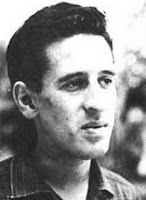Looking deeper at gang truce
InsightCrime has a section of its website devoted to the various aspects of the El Salvador gang truce including this video from the inside of the Cojutepeque prison which houses Barrio 18 gang members. InsightCrime lists several positives and negatives of the truce. The positives: 1) Less homicides Undoubtedly, the greatest benefit of this truce has been the startling drop in homicides. From a murder rate of 72 per 100,000, El Salvador now hovers around 36 per 100,000. There are questions about disappearances and manipulation of murders statistics, but even the most skeptical observers agree that homicides are much lower. The drop in murders has also helped illuminate the breadth of the gang problem. Prior to the truce, gangs were thought to be responsible for some 10 to 30 percent of the homicides in El Salvador. The new homicide rate gives us an indication of exactly how many are getting killed because of the gang phenomenon 2) More trust...

